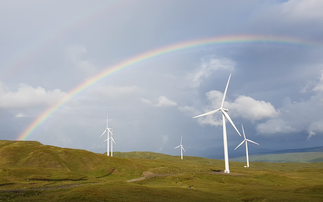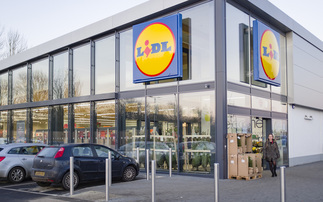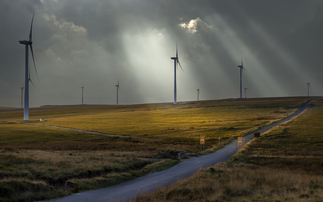Ripple Energy founder Sarah Merrick on trusting your instincts and creating radical change, in an extract from the new Secrets of the Disruptors report
Sarah Merrick is the founder of Ripple Energy, an energy company that seeks to create a renewable energy future owned by people and not big energy companies. Ripple Energy provides coowned onshore wind farms through the Community Benefit Society, and the members - i.e. households - are able to draw on the energy supply produced by the development.
Merrick has worked in renewable energy for 18 years, including as vice chair of the board of directors for RenewableUK, one of the UK's leading renewable energy trade associations.
What does your organisation do and how is it challenging the industry status quo?
Ripple's vision is a renewable energy future owned by people, not companies. We will enable people, ordinary domestic households, to collectively own onshore wind farms and be supplied by the low cost electricity they produce. People no longer need utilities to choose whether to build renewables, nuclear or gas plants to supply them with electricity. They can do it themselves.
Why is this disruptive model critical for tackling climate change and other environmental challenges?
Incremental change and tinkering around the edges just won't cut it. The world needs a scalable way to deploy renewables on a subsidy-free basis - our model can deliver that. It mobilises consumers' capital in the fight against climate change.
How do you create a business and investment case for this kind of approach?
People love onshore wind and want low electricity bills. Onshore wind is the UK's cheapest source of electricity, which makes a pretty compelling investment case. We think demand is going to be really strong.
What are the challenges?
Finding a way for our co-owners' electricity bills to reflect their ownership of the wind farm has been the biggest challenge. Customer billing systems aren't necessarily designed with generation ownership in mind.
How do you build public support for rapid disruption of established business models and infrastructures? Does it present a communications challenge?
Ripple is creating a totally new customer proposition. We need to explain it really simply so people understand it and also give enough detail to the people who want it. We're focusing on early adopters first. They are more receptive to new ideas and want to help us make it work.
Tinkering around the edges just won't cut it
What do you expect your industry to look like in 10 years' time?
We want to transform large-scale wind from being a business-to-business industry to a business-to-consumer one. That's a huge change. In 10 years I think the whole energy market will be much more diverse with people playing a far more central role. People will be able to decide how they get their electricity; not simply which company supplies it.
How should the business community address the risk that disruption will create stranded assets and job losses in key industries?
The transformation of the energy sector will create loads of opportunities. Companies and people need to be flexible and adapt. I've worked with ex-soldiers who moved into wind turbine maintenance. Sometimes you get really unexpected crossovers in skill sets, but you might need to dig a bit to find them.
What can policymakers do to accelerate green economic transformation?
Do the really obvious, no-brainer stuff immediately. Like requiring new homes to be super energy efficient, not blocking new onshore wind projects and banning non-electric car sales from 2030. Policymakers need to make the transformation something to embrace, not something to fight against.
Which other sectors do you think are most ripe for green disruption?
Finance. It's moved so slowly when the climate science signals have been so clear.
How do you think the business world is going to change by 2050?
I'd like to think that sustainability will become baked into business models because it makes economic sense, not just reputational sense. Ultimately, we can't rely on the goodwill of companies to protect the environment, we need a market framework that properly prices in the environment. We shouldn't need to wait until 2050 for that to happen.
What are the characteristics that lie at the heart of disruptive business models?
Really disruptive ideas need to make people think ‘Of course that's how you do it!' It also has to be the right time. We couldn't have done Ripple five or 10 years ago; onshore wind wasn't cheap enough.
What advice would you give to a green start-up looking to shake up a market today?
Go for it. It's not going to happen unless you do it.
What is the secret of your success disrupting the status quo?
I waited for the right idea and the right time then totally went for it. Also listening to and learning from what people say has really helped. I've not been afraid to tweak the model, whether it's after discussing something with colleagues, suppliers or our amazing advisory board.
You can read the full Secrets of the Disruptors report here, produced in association with Greenhouse PR.









